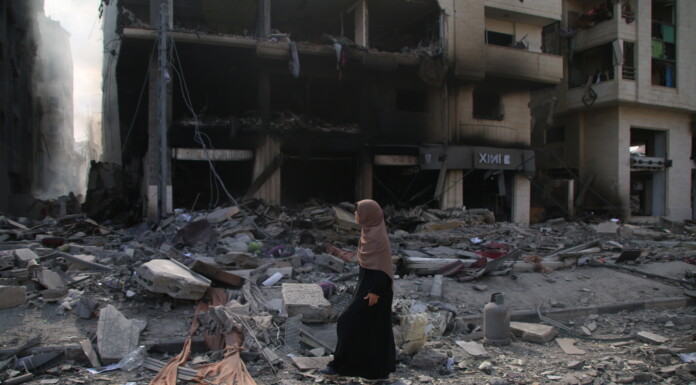The first casualty of war, it is often said, is the truth.
We have two recent examples to support this assertion. The bare-faced lies told by Russia’s leadership early last year as they sought to justify crashing over the Ukraine border were almost laughable, had the consequences not been so serious.
Trying to decipher the truth from what are firmly held differences of opinion going back centuries has been a near-impossible task during the many different conflicts between Israel and her Middle East neighbours since 1948.
It is a sad fact that winning hearts and minds is equally important as winning the actual fight. Thus, the truth will likely never see the light of day while a war is still going, and only a portion of the truth will come out long after the last shot has been fired. It has been this way forever.
To remind you, Russia was adamant it needed to rid Ukraine of the corrupt nazi leadership discriminating against Russian-speaking communities in the Donbas region. The fact of the matter is more likely to be that Russia’s short, balding, egotistical president is still crying about the breakup of the former Soviet Union and wants one of his toys back [I’m still trying to get on Russia’s banned foreigners list].
Apart from a brief moment of hope in 1993, peace has been largely elusive in and around Israel’s borders.
Israel Prime Minister Yitzhak Rabin and Palestine Liberation Organization negotiator Mahmoud Abbas signed what was known as the Oslo Accord at the White House. Israel accepted the PLO as the representative of the Palestinians, and the PLO renounced terrorism and recognised Israel’s right to exist in peace.
Both sides agreed that a Palestinian Authority would be established and assume governing responsibilities in what had been the contentious areas of the West Bank and Gaza Strip. There was the promise of permanent status on the issues of borders, refugees, and the holy city of Jerusalem. There was the hint of a new dawn. The United States committed time and resources to help implement the agreement but cracks in the accord started to show just a few years later, and new rounds of Israeli-Palestinian violence would flare up before the turn of the century.
The shocking events of the past few days confirm how far away peace is. The attack by Hamas is part of regular outbreaks of violence between Israel and Hamas that have been going on for 20 years.
Each time Hamas has launched rockets at Israel, it has predictably drawn heavy retaliation from Israel in the form of large-scale bombings on the Gaza Strip. Hamas doesn’t seem to care. It is but one group wanting to wage war on Israel. There are many smaller, but increasingly extremist groups, contesting its authority in Gaza. These groups have, at times, independently launched rocket attacks on Israel, which bring the expected retribution.
Add into the mix, the Israeli government formed by Benjamin Netanyahu is regarded by many as the most right-wing in Israel’s history. This government wants to annex the West Bank and has permitted expansion of Jewish settlements in the territory, which are deemed illegal under international law.
The truth, like peace, is hard to see.


